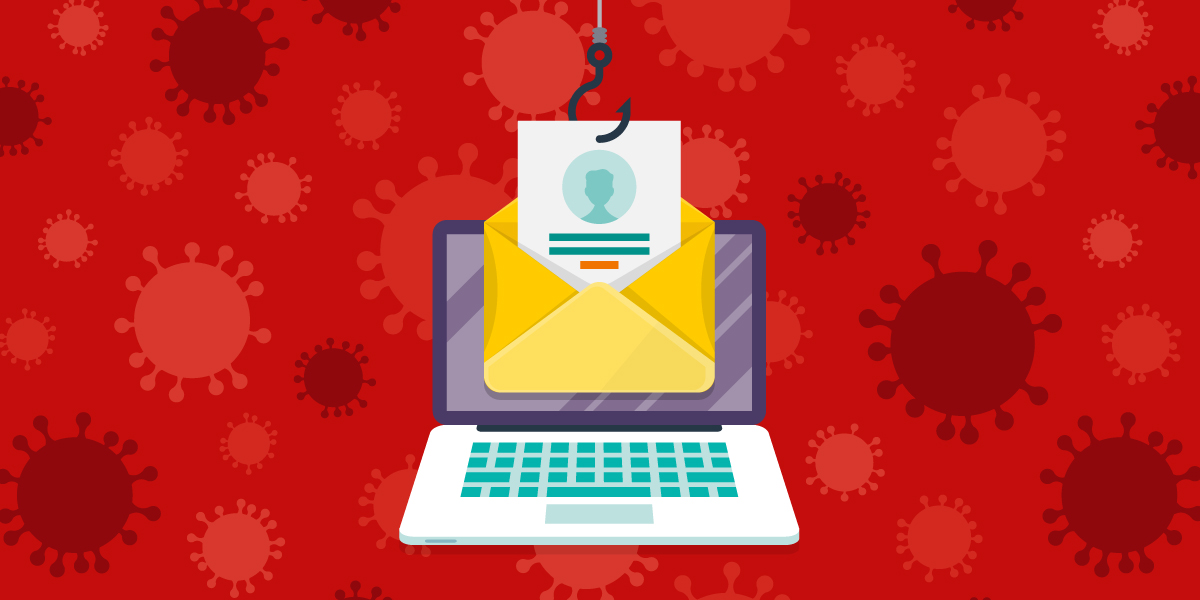Data Security – Do Not Fall Prey to Coronavirus Phishing

In this time of Coronavirus, hackers are attempting to take advantage of data security by using a technique called phishing. Phishing, as defined by Dictionary.com, is “trying to obtain financial or other confidential information from Internet users, typically by sending an email that looks as if it is from a legitimate organization, but contains a link to a fake website that replicates the real one.”
These phishing attempts tend to use fear as a motivator especially in the wake of this pandemic. Cybercriminals will pose as the WHO (World Health Organization) or Centers for Disease Control and Prevention and pretend to offer new information about the virus. Everyone is receiving emails from companies addressing COVID-19, but do not fall prey to phishing. Here are some tips to keep you safe:
- Don’t be taken in by authority figures mentioned in an email. Some scams claim to be from an official, but anyone can sign off an email with an impressive name.
- Never feel pressured into opening attachments in an email. Most importantly, don’t act on advice you didn’t ask for and weren’t expecting. If you are genuinely seeking advice about the coronavirus, do your own research and make your own choice about where to look.
- Never click [Enable Content] in a document because the document tells you to. Microsoft blocked the automatic execution of so-called “active content”, such as macros, precisely because they are so often used to implant malware on your computer.
- Do not give personal information. A coronavirus-themed email asking for personal information like your login or Social Security number is a phishing scam. Legitimate agencies do not ask for this information.
- Check the email address or link. If this URL looks suspicious, delete it. Phishers will try to create a link that looks close to a legitimate address.
- Look for generic greetings. Phishing emails are unlikely to use your name. Greetings like “Dear sir or madam” signal an email is not legitimate.
- “Act Now” emails should be avoided. Creating a sense of urgency or immediate action is a sign of phishing. The goal is for you to click on a link and provide personal information. Delete the message.
To learn more, join our complimentary webinar.
Coronavirus Phishing Emails & Malware – Secure Your Data
Learn how to spot phishing attacks and protect yourself from coronavirus related malware.
In this webinar, we will cover:
- How to prevent phishing threats by educating users
- How phishing scams work, and what’s the worst that could happen
- Ways the threats can intrude your system and how to prevent them
- How to provide “cybersecurity health” for your organization with synchronized solutions that talk to each other
Webinar: Coronavirus Phishing & Malware
Presented by Sophos
Date: Tuesday, May 12, 2020
Time: 10:00 am CST
Register here to learn how to secure your data.